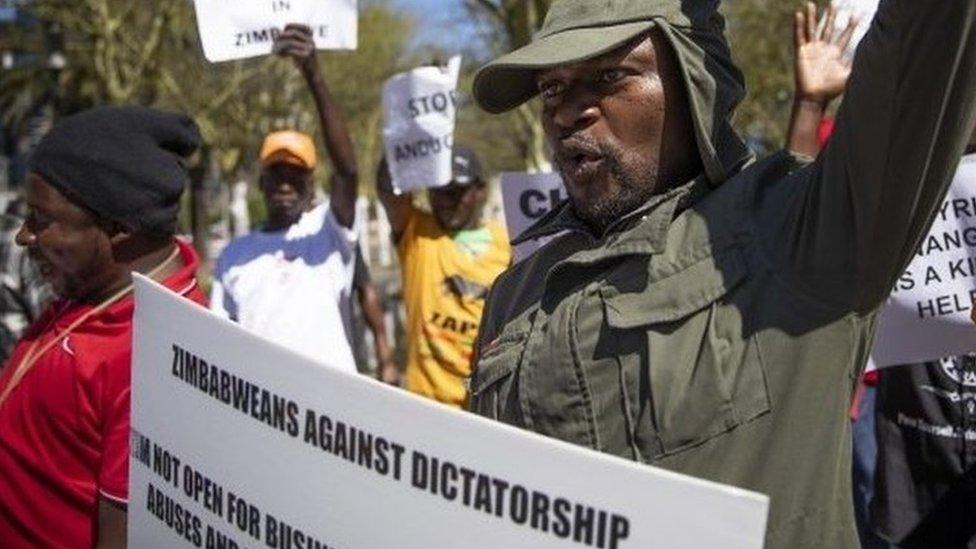Robert Mugabe granted national hero status and official mourning
- Published
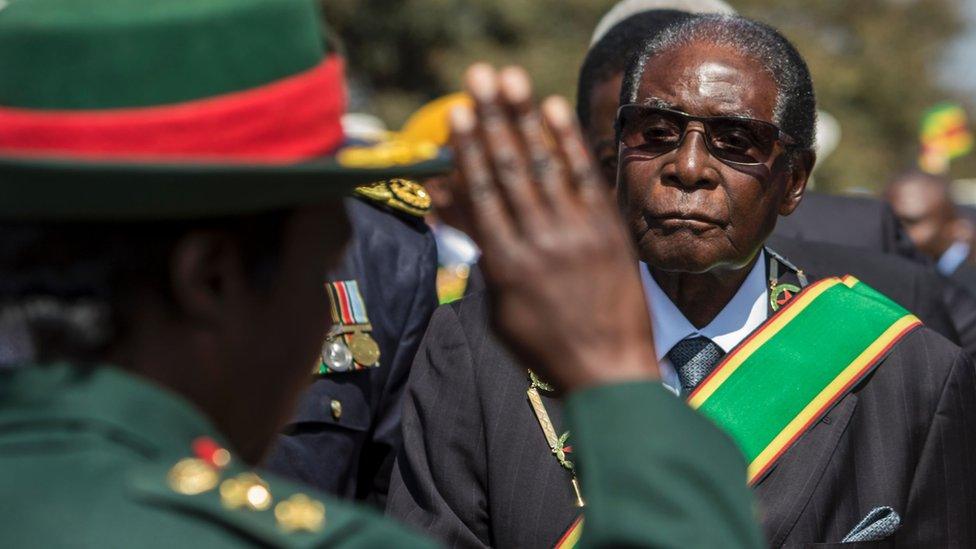
Mr Mugabe was a prominent figure during Zimbabwe's fight for independence
Three days of national mourning have begun in Zimbabwe following the death of former president Robert Mugabe.
Mr Mugabe, Zimbabwe's first post-independence leader, ruled until he was ousted by a military coup in 2017.
Despite this, his ruling Zanu-PF party has now declared him a "national hero".
Initially praised for broadening access to health and education for the black majority, Mr Mugabe later used violence against his political opponents and presided over Zimbabwe's economic ruin.
Internationally, the former independence guerrilla fighter had the reputation of a dictator, as his militias attacked political opponents and he forcibly seized land from white minority farmers to boost his popularity among voters.
His legacy has a been the subject of much debate since he died.
He remained popular among many voters even into his later years. He was removed from office only when he fired his deputy in favour of his wife, with many fearing he was preparing for a family succession rather than elections.
His former deputy Emmerson Mnangagwa became president, and has lauded Mr Mugabe since the first news of his death.
Mr Mnangagwa said the ruling Zanu-PF party had "accorded him the national hero status that he richly deserved".
No timeline has been announced for the burial, as authorities in Singapore work with the Zimbabwean embassy to fly Mr Mugabe's body home.
He had been receiving medical care in the city since April.
Zimbabwean and global reaction to Mugabe's death
Who was Robert Mugabe?
He was born on 21 February 1924 in what was then Rhodesia - a British colony, run by its white minority.
Mugabe: From war hero to resignation
After criticising the government of Rhodesia in 1964 he was imprisoned for more than a decade without trial.
In 1973, while still in prison, he was chosen as president of the Zimbabwe African National Union (Zanu), of which he was a founding member.
Robert Mugabe was known for his fiery speeches
Once released, he headed to Mozambique, from where he directed guerrilla raids into Rhodesia but he was also seen as a skilled negotiator.
Political agreements to end the crisis resulted in the new independent Republic of Zimbabwe.
With his high profile in the independence movement, Mr Mugabe secured an overwhelming victory in the republic's first election in 1980.
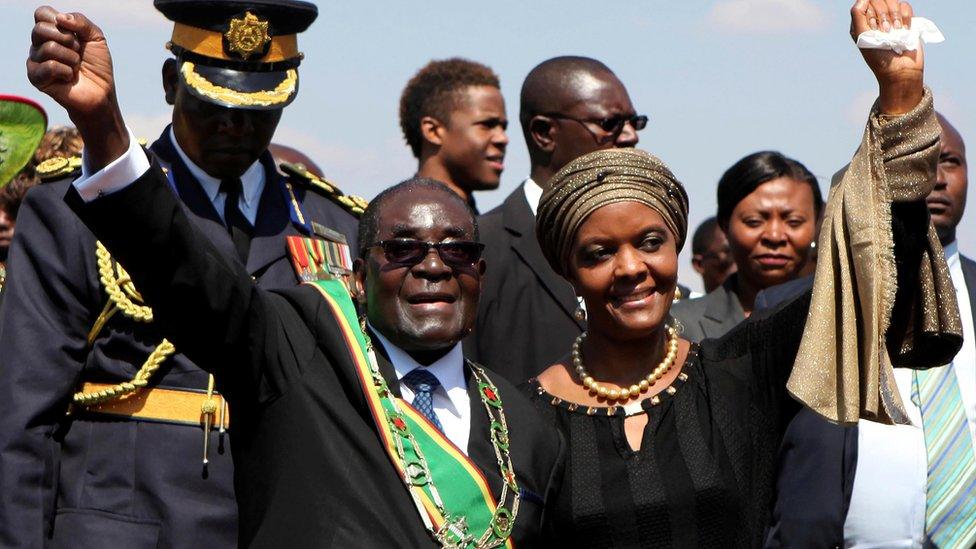
Mr Mugabe's downfall came after suspicions that his wife Grace might succeed him
But over his decades in power, international perceptions soured. Mr Mugabe assumed the reputation of a "strongman" leader - all-powerful, ruling by threats and violence but with a strong base of support. An increasing number of critics labelled him a dictator.
In 2000, he seized land from white owners, and in 2008, used violent militias to silence his political opponents during an election.
He famously declared that only God could remove him from office.
He was forced into sharing power in 2009 amid economic collapse, installing rival Morgan Tsvangirai as prime minister.
Zimbabwe's week of upheaval that saw Mugabe ousted
But in 2017, amid concerns that he was grooming his wife Grace as his successor, the army - his long-time ally - turned against the president and forced him to step down.
What about the criticism?
George Walden, one of the British negotiators at the Lancaster House Agreement in 1979 which ended white-minority rule, said Mr Mugabe was a "true monster".
The agreement "turned out rather well... and looked good for a while", but Mr Mugabe later became "a grossly corrupt, vicious dictator", he said.
Zimbabwean Senator David Coltart, once labelled "an enemy of the state" by Mr Mugabe, said his legacy had been marred by his adherence to violence as a political tool.
Allow X content?
This article contains content provided by X. We ask for your permission before anything is loaded, as they may be using cookies and other technologies. You may want to read X’s cookie policy, external and privacy policy, external before accepting. To view this content choose ‘accept and continue’.

"He was always committed to violence, going all the way back to the 1960s... he was no Martin Luther King," he told the BBC World Service. "He never changed in that regard."
But he acknowledged that there was another side to Robert Mugabe, who had "had a great passion for education... [and] mellowed in his later years".
"There's a lot of affection towards him, because we must never forget that he was the person primarily responsible for ending oppressive white minority rule," the senator said.
Gay rights campaigner Peter Tatchell: "Mugabe became a tyrant"
Other African leaders paid tribute to the late leader as a major figure in the continent's political history.
South Africa's President Cyril Ramaphosa called Mr Mugabe a "champion of Africa's cause against colonialism" who inspired our own struggle against apartheid".
Kenya's President Uhuru Kenyatta said Mr Mugabe had "played a major role in shaping the interests of the African continent" and was "a man of courage who was never afraid to fight for what he believed in even when it was not popular".
Kenya will fly all its flags at half-mast this weekend in honour of Mr Mugabe, he said.
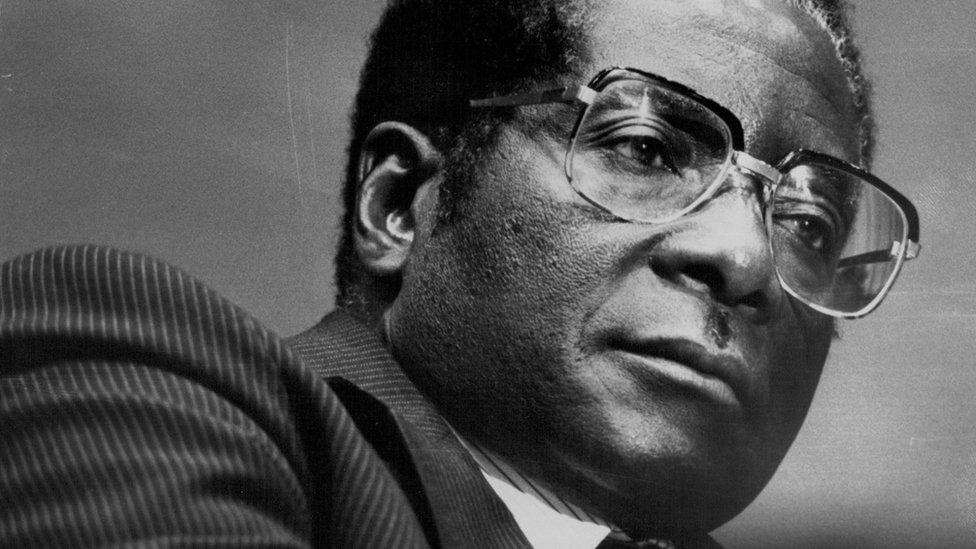
Robert Mugabe in 1981 - just recently named prime minister of an independent Zimbabwe
- Published6 September 2019

- Published6 September 2019
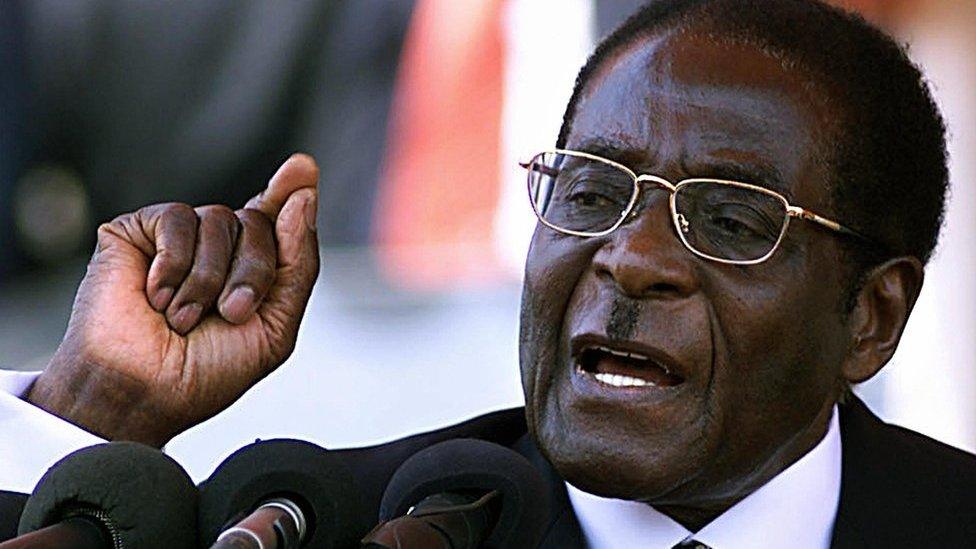
- Published21 November 2017
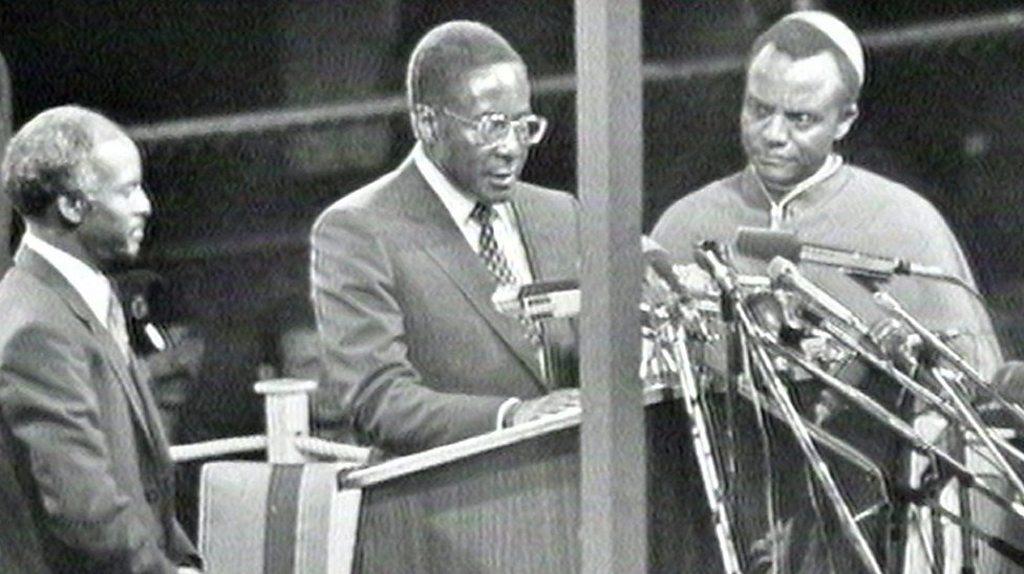
- Published25 August 2019
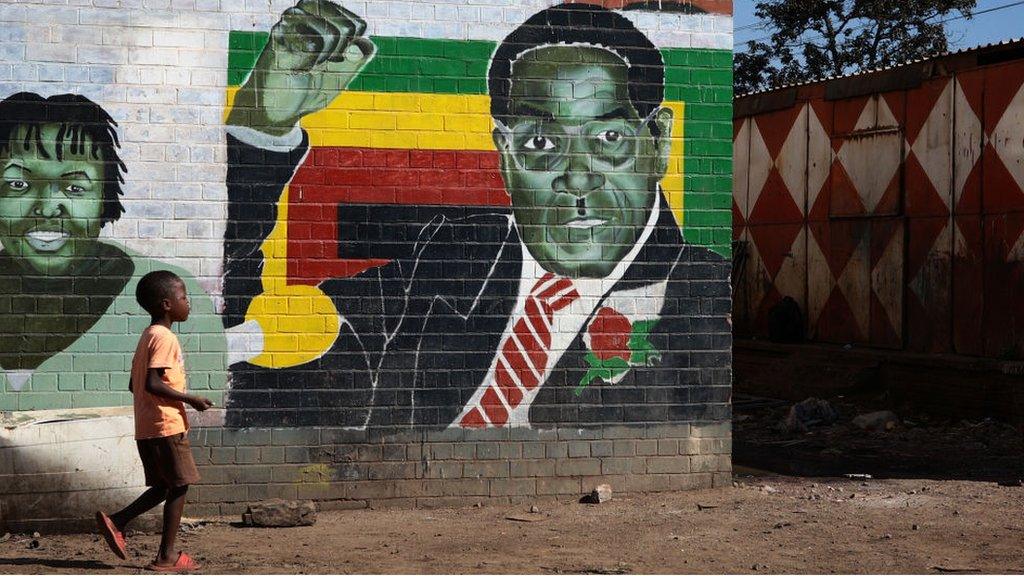
- Published21 November 2017
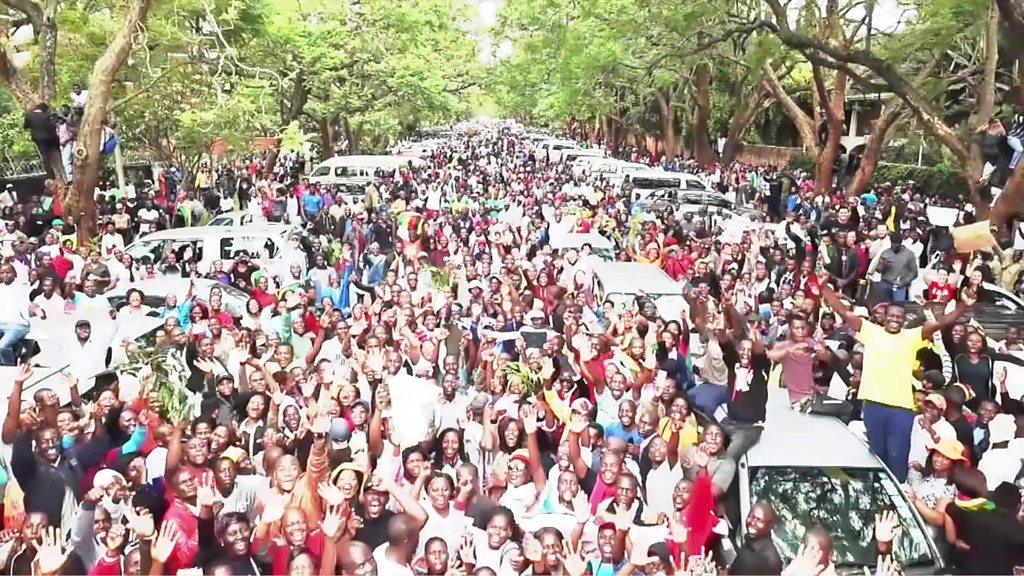
- Published6 September 2019
